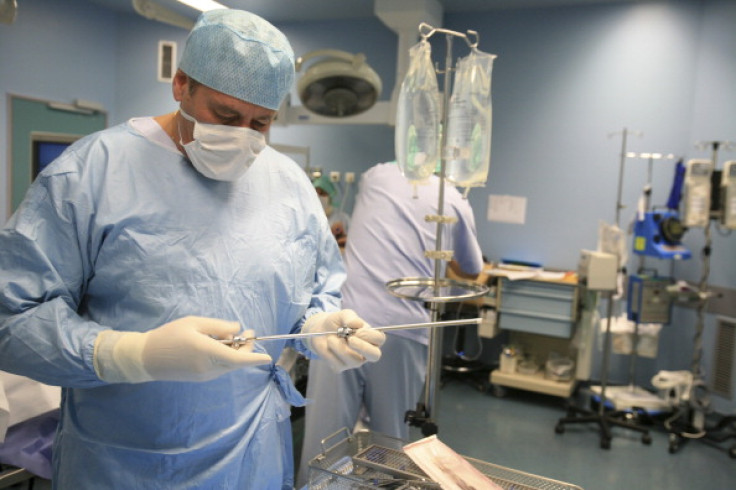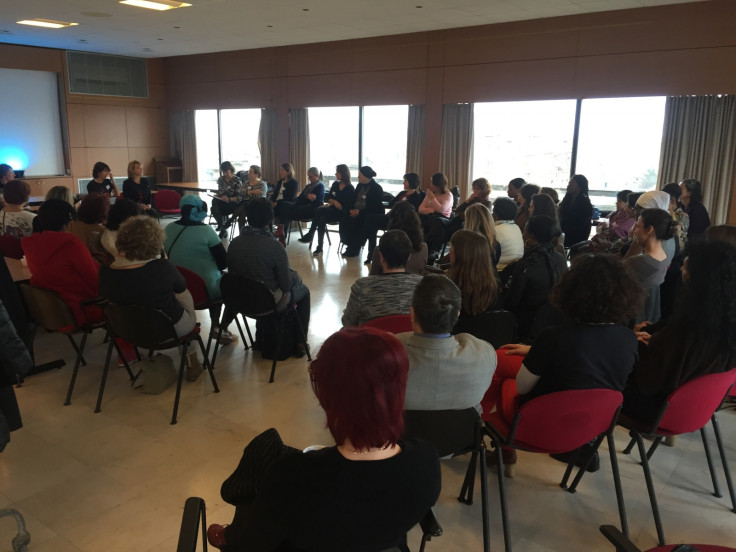Meet the surgeon who made the fight against FGM his life-long battle
For nearly three decades, a doctor has worked to 'repair' thousands of women who have been cut.
He has seen more than 15,000 victims of female genital mutilation (FGM) and carried out more than 5,000 surgical procedures during his long career, but Dr Pierre Foldès knows that the fight against the practice is far from being won.
Year on year, the flow of women coming to see him in the hospital where he now works, in Saint-Germain-en-Laye on the outskirts of Paris, continues uninterrupted.
Foldès is known as the pioneer of a reconstructive surgery technique aimed at repairing the clitoris of women who have gone through FGM, and at addressing the physical, sexual and mental-health damages that go with it.
He operates on around 50 patients every month, coming from all corners of the globe, but many more are still waiting.
More than three decades ago, Foldès trained as an urologist in France. He left early in his career however to work with Doctors of the World and other organisations, sometimes as a war surgeon, in Africa and in Asia.
It is there, in countries plagued by violence and endemic rape, that he saw for the first time the suffering caused by FGM – and he decided to dedicate his career to helping its victims.
"In Western Africa, we were operating on many women with traumatic fistulas, which are typical from war zones where many women have been raped. This is how I discovered FGM, when I noticed that many of these women had also been 'cut'," Foldès told IBTimes UK.
"As trust grew between us, some of my patients asked if it would be possible to do something to improve their situation. So I began to imagine a technique that would allow me to repair the damages caused to these women, a reconstructive surgery on the clitoris and labia".

His efforts quickly put him in danger as many members of local communities didn't accept what he was trying to do for the women. He received a number of death threats, which didn't stop when he returned to France to continue his work and refine his technique.
"This work put me in danger, because it wasn't just about operating but about overturning years of a cultural practice deeply ingrained within local communities", he says.
A surgery technique adapted to each woman
Precise estimates are hard to come by, but the World Health Organisation estimates that 200 million women alive today have been cut. It lists three main types of mutilation, from excision (removal of the clitoris and labia minora) to infibulation (narrowing of the vaginal opening).
But Foldès says the reality is much more complex, with FGM characterised by a variety of clinical symptoms, ranging from pain and difficulty in having sex to major psychological trauma.
"It is too simple to divide FGM along categorical lines. I have seen cases where women's vaginal openings had been stitched up, but they still experienced some form of sexual pleasure. In contrast, some women who received a 'smaller' cut to the clitoris had see their sexuality completely destroyed. Even the smallest cutting is a very violent act, and the psychological distress of a woman can overtake her clinical symptoms," he points out.

Although surgery on its own cannot erase the trauma, it can be a very important step for some women to regain control of their body and sexuality. In 2012, Foldès' legitimacy grew when he published an article in prestigious scientific journal The Lancet, detailing his technique to repair the clitoris, and showing how it could help alleviate some of the health problems associated with FGM.
The principles behind the surgery are simple."The clitoris is a bigger organ than what people usually think and part of it is actually 'hidden' and out of the reach of the cutters. With FGM, part of the clitoris sustains an injury, and the main neurovascular trunks remain intact . The idea is to remove the parts that have been injured, reconstruct the clitoris with what remains, and bring it back into a normal position. The difficulty is that it's not a technique that is set in stone. Surgeons can follow the basic principles, but they have to be flexible enough to adapt to the particular damages sustained by each women", Foldès explains.
The Lancet study also highlighted that the majority of Foldès' patients reported positive outcomes a year after surgery, with increased sexual pleasure and reduced pain. That same year, Foldès secured one of the most important victories of his career when the French state agreed to reimburse the cost of the procedure.
Hearing women's voices
However, surgery is not enough to help all women, if it doesn't go hand in hand with solid psychological support. Foldès himself is convinced of this, and he has never pushed his patients to go through with surgery. In fact, only around a third of the women he sees go down this route.
The surgeon's work took a decisive turn when he met his colleague Frédérique Martz. With her, he founded a centre that promotes a holistic approach to treating violence against women: - the Institut en Santé Génésique, located near the hospital where he operates.
Some 19% of the centre's visitors are FGM victims, but , F. Martz and P. Foldès and their staff welcome all women who have suffered from violence of any kind – whether domestic, rape and even sexual harassment in the workplace. These women are able to meet with psychologists as well as also social workers and lawyers who help them with any struggles they might be facing in their daily lives.

They are also brought together for group sessions, during which they are offered a safe space to talk and share their most intimate, traumatic stories.
"What we came to realise is that many of these violence [types] are linked. Often, women who have suffered genital mutilations are also the victim of other forms of violence. Their relationships with men can be very problematic and they often live in precarious social situations," Frédérique Martz says.
"With surgery, Pierre can address some of the physical problems, but it is only a small part of the journey towards recovery. We want to address all the women's problems as well as to get them talking about what happened to them."
Whether women go through surgery or not, the pair's ultimate goal is to empower them. Unlike many other anti-FGM advocates, P. Foldès and F. Martz do not want to speak out about their work too often as they do not want to overshadow the patients.
"The women we see have suffered from important violence at the hand of men, who want to control them and their sexuality. At the institute, we want to give them back this control. Whether they choose to be operated on or not, we listen to their stories and we want their voices to be heard by all, as they are worth a thousand speeches against FGM", they say.
© Copyright IBTimes 2024. All rights reserved.






